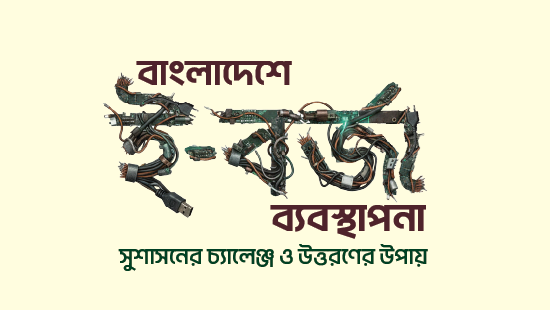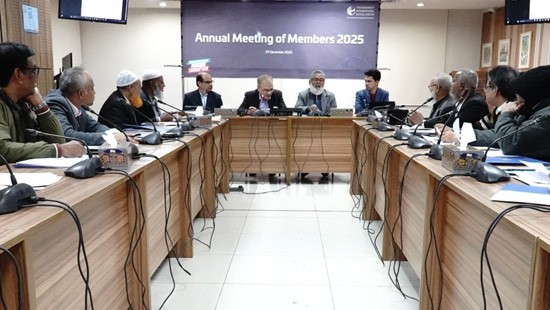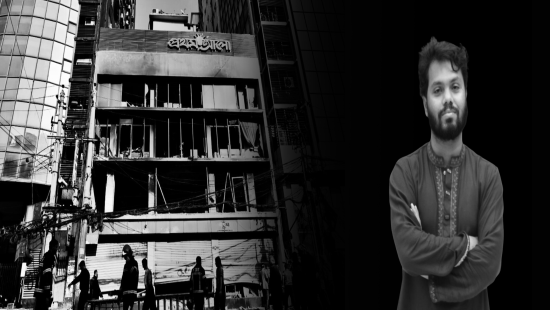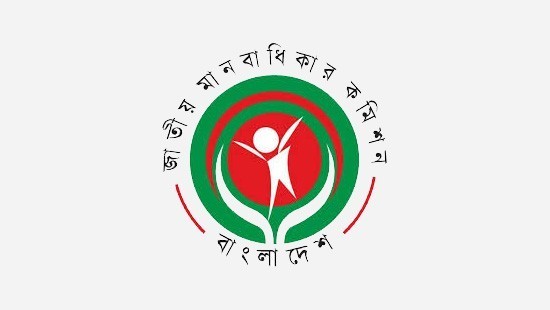Press Release
Dhaka, 18 November 2024: Transparency International Bangladesh (TIB) stated that while there are indications of the advancement towards building a “New Bangladesh,” certain challenges remain in various sectors. During a press conference today, the organization shared its insights regarding the 100 Days that have passed since the fall of the authoritarian regime. TIB recognized the interim government's timely and significant actions that align with the vision of a “New Bangladesh,” while also highlighting persistent challenges in specific sectors.
Dr. Iftekharuzzaman, Executive Director of TIB, expressed optimism about the ongoing reformation, stating, “In its 100 days, the interim government has implemented numerous timely and significant measures. Despite challenges in certain areas, progress is evident in the pursuit of a 'New Bangladesh." Notable actions include the initiation of the trial process for the arbitrary killings and human rights violations committed by the authoritarian government, efforts to provide compensation and medical care to those injured in the movement, the repeal of oppressive law - the Cyber Security Act, signing the International Convention against Disappearances, and forming an investigation commission on disappearances. Additionally, reform commissions have been established to address key sectors of state reform, visible changes have begun in the financial sector, and steps have been taken to convert Ganabhaban into a museum to honor the martyrs of the anti-discrimination movement. The accountability process for corruption involving ministers, MPs, and allies of the fallen government, along with strategic steps to recover laundered money, are also significant achievements. Nevertheless, the anticipated advancements in managing inflation have not materialized, and deficiencies persist in the realm of law and order. The deeply rooted syndicates persist, and although professional is susceptible to change, the transformation of practices requires considerable time.”
Dr. Zaman observed that it was evident that the essential strategies and roadmaps had not been put together right away to meet the important responsibilities of state reform and infrastructure development, which are vital for realizing the objectives of the new political settlement entrusted to the interim government. Furthermore, the ad hoc approach to administrative decision-making and exclusion of the private and educational sectors from the reform initiatives are crucial. Another key issue is the lack of initiatives to reform political parties and their internal politics in the context of the anti-discrimination movement. Moreover, the absence of the role of the army in ensuring peace and order in the Chittagong Hill Tracts, despite its exclusive authority, along with the deliberate attacks and threats against some media outlets to silence them, raises serious concerns, TIB believes.
In reference to the duration of the reformation process, Dr. Zaman stated, "The student-public movement was not solely concerned with the establishment of a new government; it sought to establish a “New Bangladesh” through state reform and new political arrangements." If state reform is not carried out based on the reports of the commissions formed for this purpose and other positive steps, and if a sudden election is held without creating a legal and institutional framework to support them, the core spirit and objectives of the student-public movement will remain at risk. It is interim government's responsibility to create a strategic roadmap for fulfilling the assigned responsibilities in consultation with stakeholders.”
The TIB research report, titled “New Bangladesh” Observations on the First 100 Days after the Fall of the Authoritarian Regime” highlights both prospects and challenges in building a "New Bangladesh." It emphasizes the potential for transformative state reforms and new political and social arrangements, with the interim government playing a key role. Over the past 100 days, the government has initiated efforts in state reforms, law and order, financial sector improvements, and crime prosecution. However, timely strategies and roadmaps to implement these responsibilities remain absent. While steps have been taken to prosecute violence from the movement, the lack of specific, evidence-based cases and the widespread indictment of hundreds raise concerns about holding key culprits accountable. Challenges persist in restructuring state institutions like the Election Commission, Anti-Corruption Commission, Human Rights Commission, and Information Commission, which are crucial for lasting reform.
The study highlights controversies in decision-making, including ad-hoc approaches, inefficient governance, and poor coordination among officials. Partisanship remains deeply rooted, with vested interests merely shifting from one group to another, posing risks to good governance. While the Army played a vital role in the movement's final phase, its efforts to maintain peace, particularly in the Chittagong Hill Tracts, have been below expectations.
The study revealed impatience among stakeholders, including political parties, in giving the government time for reforms. No internal political party reforms have been observed, highlighting a failure to embrace the core spirit of the anti-discrimination movement. The influence of religion-based politics is also growing. The role of students in overthrowing the authoritarian government was crucial, yet some lack a firm stance and political tolerance, despite prioritizing state reform.
The study revealed that attacks on the media and efforts to shut down media institutions threaten press freedom. Misuse of power by certain groups obstructs the goal of a non-communal, equal rights-based Bangladesh, while violence undermines gender, religious, cultural, and ethnic diversity. It also highlighted that India’s failure to accept the fall of authoritarianism has strained diplomatic relations, adding risks. While international support for the interim government is positive, concerns about the impact of loan conditions from the World Bank, ADB, and IMF, and rising debt repayments, pose additional financial challenges.
The research paper was presented by Senior Research Fellow Shahzada Akram, with Professor Dr. Sumaiya Khair, Adviser, Executive Management; Muhammad Badiuzzaman, Director of the Research and Policy Division; and Mohammad Tauhidul Islam, Director of Outreach and Communication, also present at the press conference.
Media Contact:
Mohammad Tauhidul Islam
Director, Outreach and Communication
Phone: +8801713107868
Email: tauhidul@ti-bangladesh.org






